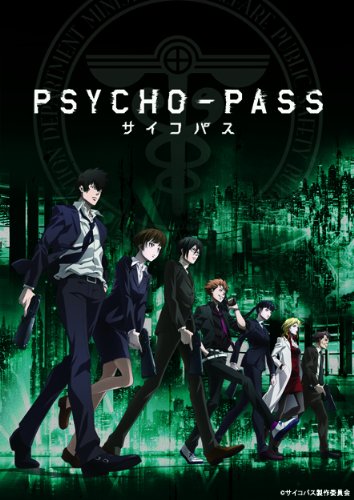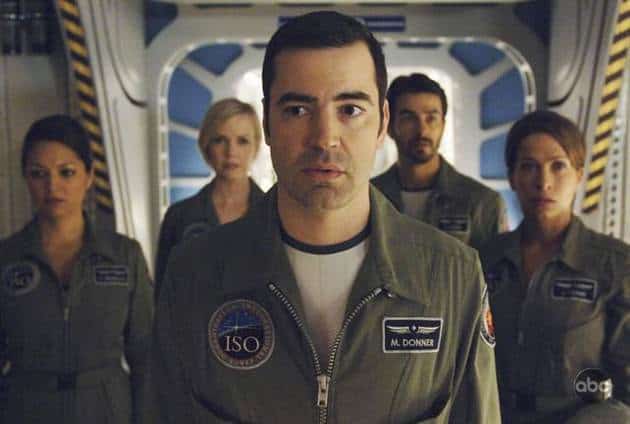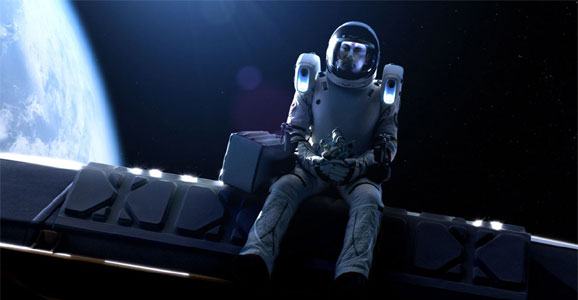Okay. So. I watched Black
Mirror. And while I generally liked it, I don’t know, you guys. There’s
some serious shit going down in this one that needs talking about. And that shit is all about the way the
speculative fiction show from England’s Channel 4 treats women.
So, here’s the thing: there’s really no way I can talk
about the misogyny issues in Black Mirror
without getting spoiler-y, so I’m breaking this into two sections; The first
will be spoiler-free (and largely reflect that things about the show that I
really liked) and the second will unpack the, let’s call them problematic,
issues the show struggles with.
Metaphor! Metaphor!
Part I: Stuff That
I Like! (Spoiler-free!)
Black Mirror
has been compared positively to The
Twilight Zone, something that to my mind is more or less accurate. Just
like its predecessor, Black Mirror is
an anthology series with each episode being a different story with a different
cast and a different setting. Unencumbered by any kind of continuity, it makes
for an easy watch knowing that you literally don’t have to know anything at all
going into any given episode.
What the show really excels at is being unnerving, which
is different from being scary or creepy. Black
Mirror is not a horror show; there are no monsters or ghosts or demons or
other things hiding under the bed just ready to pounce. If anything, the villains
in the show are to the letter all human. For as much as the show has been sold
at least partially on the notion of it being about the dangers of technology,
the show itself is pretty agnostic on that point. If anything, it suggests that
technology is a blank thing, neither good nor evil. In each story, it’s always
a human who ends up being the scary one. That notion of ten minutes in the
future and There But For the Grace of God Go I is what creates that unnerving
feeling you get watching it.
You are 100% guaranteed to make each of these faces at some point while watching.
In that sense, the show wears its anti-transcendental
attitude on its sleeve. Each episode gives us another story of people more or
less always being forced into making hard choices. The first episode details
the British Prime Minister being presented with a revolting choice in the face
of a terrorist threat. One episode
pretty ably mocks reality TV by showcasing a class of people whose lives are
geared toward literally nothing more than winning a television talent show. Another
one presents a woman whose new husband has died when she is given a vaguely
Monkey’s Paw-style option for getting him back. The show presents no easy
victories.
It also looks great doing it. You could easily confuse
almost every episode for a mini movie with high production value, talented
actors, and a broad scope. The end result is entertaining certainly and
tailor-made for Netflix binging, a fact that Netflix apparently was keen to
since they’ve announced that they are going to take over production of the show
in its third season from Channel 4.
Now to talk about the ugly bits. If you don’t want
spoilers, jump ahead to Part III below.
Part II: Things
That Make You Go, “Hmm.”
Clearly, there are things that Black Mirror does very well, which is what makes the rest of it so
confounding. Amidst all that really cool speculative fiction stuff, there’s a
really unsettling vein of misogyny that I had a hard time dealing with. Let’s
unpack, shall we? (Again, a reminder: Here there be spoilers.)
The first hint is in the second episode, “Fifteen Million
Merits”, starring a de-Downton Abby’d Jessica Brown Findlay. The episode is
about a future where people, possibly everyone, live in a confined building and
must spend each day cycling on a stationary bike to earn merits which can be
used to buy food, clothes, and of course, avatars for their online selves. The
episode tries to say a lot, but its primary story comes from a woman who is
gifted the requisite merits needed for the most expensive purchasable item – a chance
to compete on a reality talent show and liberate yourself from this dreary
life. Findlay’s character performs for a panel of judges who deem her not
talented enough as a singer, but perfectly suited to, ahem, other services.
This episode almost gets a pass from me given that it’s sort of blatantly
underlining the use and abuse of women for others’ pleasure and if that were
the end of it, the message would be received, albeit in a heavy handed way.
"Being sold into pornography and dying giving birth. Note to self: Get new agent."
But
let’s look at another example. The next episode, “The Entire History of You” is set in a
future where the must-have technology device is actually an implant in your head
that allows you to replay everything you see and do and even share those
memories with people around you. A man, struggling at his job as a lawyer,
comes to believe after a dinner party that his wife may have slept with another
party attendee years ago. The jealousy leads to fights between the two as he
comes to insist not only that she’s lying to him about having had an affair but
also to demand that she show him her memories of the time in question to prove
her fidelity to him. If this episode ended there, it would have simply left the
main character as an insecure douchebag, but by forcing the issue we learn that
his wife did actually have an affair and that, in fact, their young daughter
was the product of that affair. In other words, the wife’s character, in the
eyes of the show, was not entitled to the privacy of her own memories and the
man’s frankly line-crossing behavior is utterly justified because of her lying
ways, even after establishing that the man is borderline abusive, demeaning and
jealous over perceived slights. While in the end his insistence on learning the
truth leaves him hollow and without his family, that fate is cast as the result
of her affair, not his inability to not be an ass to his family.
"Reviewing memories now...damn, turns out there was a 'it's all my fault' clause in the marriage vows..."
The trend continues in the episodes “Be Right Back” and “White
Bear,” the third and fourth episodes. In the first, a woman (Hayley Atwell)
becomes inconsolable after the death of her husband before learning that a
company has perfected a way to create a sort of digital copy of his personality
based on his online and social media activity, allowing her to get emails and
phone calls from her “husband” before eventually even purchasing a life-sized
artificial copy of him, a shell that can contain program files to recreate his
personality. Throughout the episode, Atwell’s character moves through the
stages of grief but becomes shrill and unreasonable. Again, handled differently
this could be a powerful story about grief, or at least about how much of our
personalities we leave in the world without thinking about it. In the end, what
we get is a story about a woman who can’t handle not controlling her husband
and so banishes the last remnants of him to an isolated existence.
Likewise, “White Bear” deals with a woman who awakes in a
house she doesn’t recognize, unsure of who she is, and is quickly confronted
with a kind of zombie-apocalypse style horror where the population has become
mindless, focusing only on recording her every movement on their cell phones
while she is chased by mysterious people in masks who want to kill her. In the
end it’s revealed that she is actually in a kind of correctional facility for
the crime of allegedly murdering a young child with her boyfriend and filming
the murder and her punishment is to be tortured in front of a live audience
every day with her mind wiped clean every night. Despite the presence of
another woman (played by Tuppence Middleton) who actually has some agency of
her own, the entire episode is one torturous sequence after another for a
character who is hardly proven to have committed the crime she’s accused of.
An apt summation of the show in one image.
Part III:
Conclusions (Come Back, Spoiler-phobes.)
So there’s my dilemma about Black Mirror: It’s an extremely well-produced and creative show
about how humanity relates to technology and each other, but it’s got some
major issues with the unstated politics of the show. Your mileage may vary as
to how much this of value to you when watching. I’m not usually one to get
caught up in a show’s political underpinnings. I can usually shut down that
part of my brain and just enjoy the story. Something about Black Mirror made that hard for me, though. And once the switch was
flipped in my brain, it made it really hard for me to go back.
I should also mention that I don’t think any of my issues
with the themes in the show suggest that it isn’t well written, well-acted, and
generally well done. It just makes for some sticky watching for me. Regardless,
Netflix has already commissioned 12 episodes, almost doubling the existing
seven that have already aired. Look for them on Netflix now with additional episodes
due out in 2016.






















